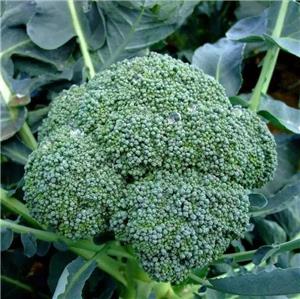-
2104-2021
RTS,S malaria vaccine reaches more than 650 000 children in Ghana, Kenya and Malawi through groundbreaking pilot programme
Two years on from the launch of a pilot programme, more than 1.7 million doses of the world’s first malaria vaccine have been administered in Ghana, Kenya and Malawi, benefitting more than 650 000 children with additional malaria protection.
-
0704-2021
WHO urges countries to build a fairer, healthier world post-COVID-19
COVID-19 has unfairly impacted some people more harshly than others, exacerbating existing inequities in health and welfare within and between countries. For World Health Day, 7 April 2021, WHO is therefore issuing five calls for urgent action to improve health for all people.
-
2603-2021
WHO validates Cote d’Ivoire for eliminating sleeping sickness as a public health problem
Côte d'Ivoire has successfully eliminated human African trypanosomiasis, also known as “sleeping sickness”, as a public health problem, becoming the second African country after Togo to be validated by the World Health Organization (WHO).
-
1703-2021
CPhI & P-MEC China gives a glimpse of the success returning pharma events will deliver in 2021
Hangzhou Muhua Bio-Tech Co., Ltd attended the recently hosted CPhI & P-MEC China 2020, which attracted a remarkable 46,157 visits of professional pharma visitors, including 5,105 international attendees taking part online.
-
1110-2021
WHO report highlights global shortfall in investment in mental health
World misses most 2020 mental health targets; extension of WHO Mental Health Action Plan to 2030 provides new opportunity for progress
-
2909-2021
Papua New Guinea steps up efforts to eliminate lymphatic filariasis
MDA is needed to reduce infection in the community to levels below a threshold at which mosquitoes are unable to continue spreading the parasites from person to person, and new infections are prevented. WHO recommends the transmission assessment survey (TAS) to determine when infections have been reduced below these target thresholds and MDA can stop. Once MDA has stopped, TAS is used as a surveillance tool to determine that infection levels are sustained below target thresholds.
-
2809-2021
Safe abortion in the context of COVID-19: partnership, dialogue and digital innovation
As the pandemic continues to challenge health systems capacity for delivering essential services, International Safe Abortion Day is an opportunity to celebrate global efforts to protect ongoing provision of comprehensive abortion care.
-
2609-2021
Cholera
Cholera is an acute diarrhoeal infection caused by eating or drinking food or water that is contaminated with the bacterium Vibrio cholerae. Cholera remains a global threat to public health and is an indicator of inequity and lack of social development. Researchers have estimated that every year, there are 1.3 to 4.0 million cases of cholera, and 21 000 to 143 000 deaths worldwide due to the infection.
-
2209-2021
WHO calls on world leaders at the UN General Assembly to focus on vaccine equity, pandemic preparedness, and getting the SDGs back on track
WHO is urging leaders attending the 76th session of the United Nations General Assembly (UNGA) to guarantee equitable access to COVID-19 vaccines and other life-saving tools; ensure the world is better prepared to respond to future pandemics; and renew efforts to achieve the Sustainable Development Goals (SDGs).
-
1309-2021
How vaccines can help to prevent antibiotic resistance - Zimbabwe’s response to drug-resistant outbreaks of typhoid and cholera
Antibiotic resistance is a natural phenomenon that happens when bacteria develop the ability to defeat the drugs designed to kill them. The germs change over time, no longer responding to medicines thus making infections harder, and sometimes impossible, to treat. This, in turn, results in higher health care costs for both individuals and governments. “Preventing and controlling antibiotic resistance calls for a multi-pronged approach, of which vaccines is one”, says Dr Stanley Midzi, WHO Health Systems Strengthening Advisor.




